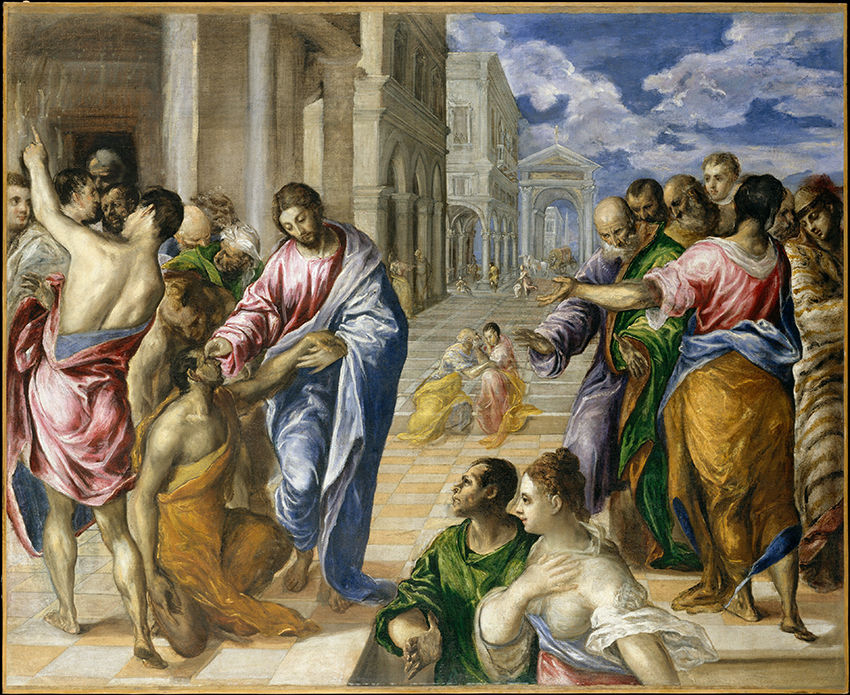God’s ways of seeing are not our ways, we hear in the first reading. Jesus illustrates this in the Gospel — as the blind man comes to see and the Pharisees are made blind.
The blind man stands for all humanity. “Born totally in sin” he is made a new creation by the saving power of Christ.
As God fashioned the first man from the clay of the earth (see Genesis 2:7), Jesus gives the blind man new life by anointing his eyes with clay (see John 9:11). As God breathed the spirit of life into the first man, the blind man is not healed until he washes in the waters of Siloam, a name that means “sent.”
Jesus is the One “sent” by the Father to do the Father’s will (see John 9:4; 12:44). He is the new source of life-giving water — the Holy Spirit who rushes upon us in baptism (see John 4:10; 7:38—39).
This is the Spirit that rushes upon God’s chosen King David in the first reading. A shepherd like Moses before him (see Exodus 3:1; Psalm 78:70—71), David is also a sign pointing to the good shepherd and king to come — Jesus (see John 10:11).
The Lord is our shepherd, as we sing in the psalm. By his death and resurrection he has made a path for us through the dark valley of sin and death, leading us to the verdant pastures of the kingdom of life, the Church.
In the restful waters of baptism, he has refreshed our souls. He has anointed our heads with the oil of confirmation and spread the eucharistic table before us, filling our cups to overflowing.
With the once-blind man we enter his house to give God the praise, to renew our vow: “I do believe, Lord.”
“The Lord looks into the heart,” we hear today. Let him find us, as Paul advises in the epistle, living as “children of light” — trying always to learn what is pleasing to our Father.
Scott Hahn is founder of the St. Paul Center for Biblical Theology, stpaulcenter.com.

